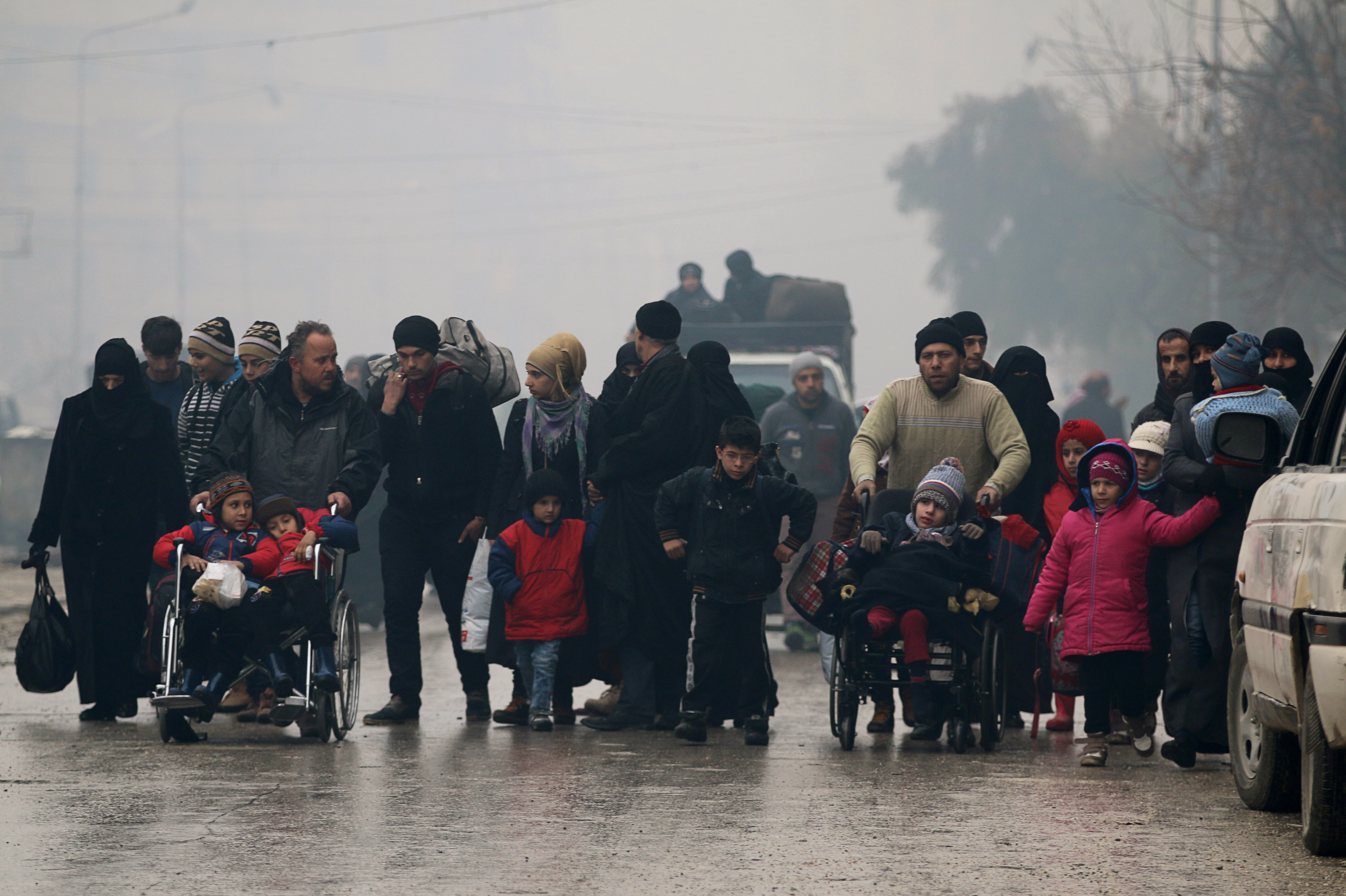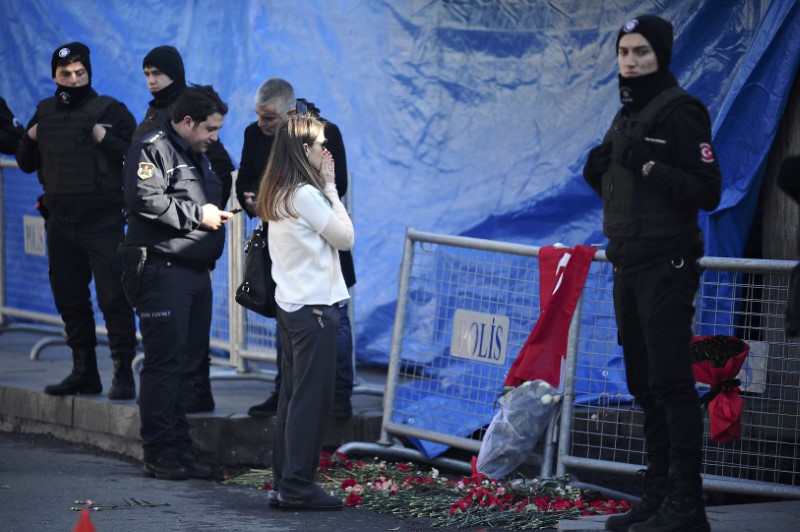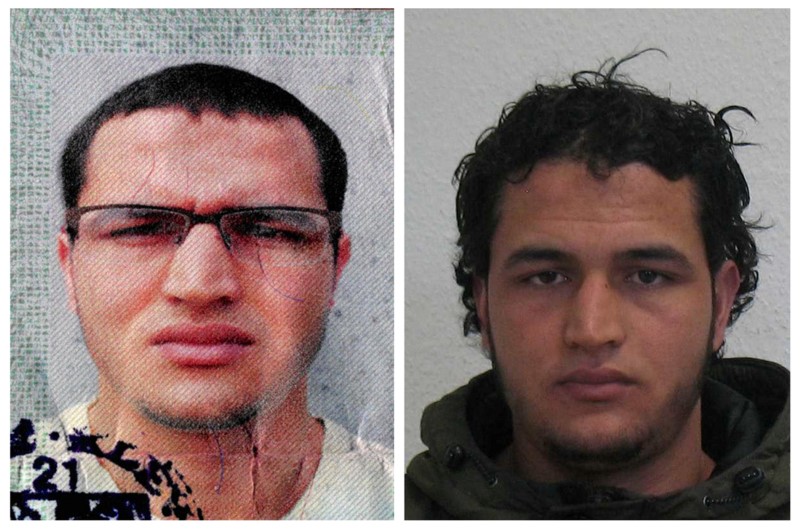
By Laila Bassam and Lisa Barrington
ALEPPO, Syria / BEIRUT (Reuters) – As the four-month siege of eastern Aleppo neared its end, some survivors trudged in the rain past dead bodies to the government-held west or the few districts still in rebel hands.
Others stayed in their homes and awaited the Syrian army’s arrival.
For all of them, fear of arrest, conscription or summary execution had added to the daily terror of bombardment.
“People are saying the troops have lists of families of fighters and are asking them if they had sons with the terrorists. (They are) then either left or shot and left to die,” said Abu Malek al-Shamali in Seif al-Dawla, one of the last rebel-held neighborhoods.
The United Nations said it had reports that Syrian government troops and their Iraqi militia allies had killed civilians in eastern Aleppo, including 82 people in four different neighborhoods in the last few days.
Speaking from a small area still under rebel control, father of five Abu Ibrahim, said he knew of two families executed by the advancing militias that have formed the vanguard of the assault on Syria’s second city.
The United Nations also said it was concerned about reports that hundreds of young men leaving rebel-held territory had been detained.

People walk as they flee deeper into the remaining rebel-held areas of Aleppo, Syria December 13, 2016. REUTERS/Abdalrhman Ismail
President Bashar al-Assad’s opponents have accused the government of mass arrests and forced conscription. The government has denied this and accused rebels of compelling men to fight in their ranks.
On Sunday foreign journalists were invited to a ceremony where Syria’s army enlisted 220 men, including former rebels and others from areas captured by the government.
“You have been recalled to obligatory service,” Brigadier Habib Safia told the men in the military police headquarters in a government-held Aleppo district.
One of the men, Mohammed Hilal, in his 20s, said he and some comrades had escaped from the east along with more than 60 families and that he was ready to join the army.
WIPED OFF THE WORLD
Those still trapped in eastern Aleppo have been using social media to distribute messages they feared would be their last.
“This is a message from someone saying farewell and who could face death or arrest at any time,” a medic working in Aleppo wrote via the Whatsapp messaging service.
“Trapped from all sides, death comes from the sky in barrels … Remember what you had in Aleppo, that there was a city called Aleppo wiped off the map and from history by the world.”
Abu Yousef, in his thirties, said he and his family fled bombardments, tanks and executions in his home neighborhood of Bustan al-Qasr.
“Thanks to god, we are still alive … the regime is constantly bombing us. My two children are injured, I am injured. The regime wants to kill us all. We are very afraid,” he said.
“You tell me ‘may God protect you’. I don’t want God to protect us, we want a solution! We want a cessation of hostilities. We want someone to get us out of here. It’s enough. People are dying,” he said.
The UN has called for international oversight for civilians and rebel fighters as the government takes over.
“The only way to alleviate the deep foreboding and suspicion that massive crimes may be under way both within Aleppo, and in relation to some of those who fled or were captured, whether fighters or civilians, is for there to be monitoring by external bodies, such as the UN,” UN human rights office spokesman Rupert Colville said.
Children’s charity War Child said: “What we are witnessing in Aleppo is a humanitarian catastrophe of historic proportions, bearing comparison to infamous disasters of the past – such as Srebrenica and Guernica.”
IT’S HELL
East Aleppo’s civil defense rescue organization, which pulled many hundreds of dead and injured from rubble over years of the war, told Reuters rescue services had stopped.
“Our machinery and equipment is all broken. We have nothing left … We are working with our hands just to get people from under the rubble,” said Ibrahim Abu Laith, an official from the civil defense group also known as the White Helmets.
The civil defense wrote on its Twitter account on Tuesday it could no longer keep track of the numbers of dead.
“There is no total number of casualties in besieged Aleppo today, all streets and destroyed buildings are full with dead bodies. It’s hell.”
With hospitals bombed out of service, aid stocks exhausted and a brutal bombing campaign in recent weeks, people in east Aleppo are desperate.
“People, even those wanted (by the regime) have started to flee to the regime from the intensity of the shelling, hunger, cold and amount of injuries which are not treated, in addition to the corpses in the streets … Planes and artillery are hitting strongly places where civilians are gathering,” the medic said in his message.
UN human rights chief Zeid Ra’ad al Hussein warned that what we are seeing now in Aleppo could happen to populations of other towns outside government control such as Douma, Raqqa and Idlib.
“The crushing of Aleppo, the immeasurably terrifying toll on its people, the bloodshed, the wanton slaughter of men, women and children, the destruction – and we are nowhere near the end of this cruel conflict,” Zeid said.
(Reporting by Lisa Barrington, John Davison, Ellen Francis and Angus McDowall in Beirut, Laila Bassam in Aleppo and Suleiman al-Khalidi in Amman; Editing by Janet McBride)












